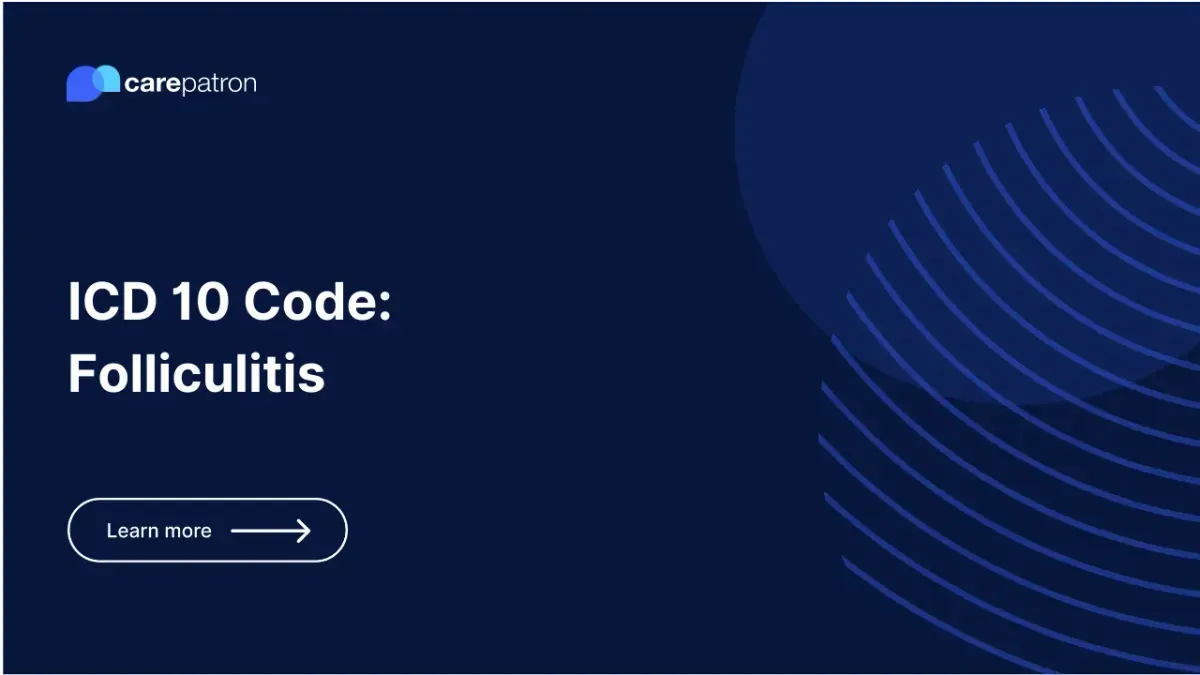
Folliculitis ICD-10-CM Codes
Discover the key ICD-10 codes for diagnosing folliculitis, a common skin condition. Carepatron’s guide provides a comprehensive overview of folliculitis codes.
Use Code
EHR and practice management software
Get started for free
*No credit card required
Free
$0/usd
Unlimited clients
Telehealth
1GB of storage
Client portal text
Automated billing and online payments
